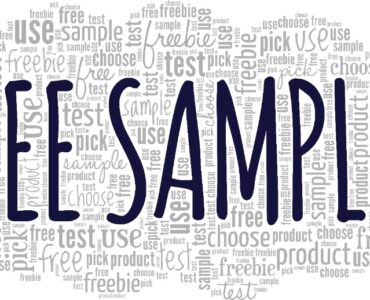by Luke Smith
Dentistry is a demanding and complex field where dentists must provide quality service to often nervous patients. Dental anxiety is so common that it prevents many from getting annual care until they have serious trouble with their teeth. It’s even more daunting for multilingual patients who may speak a different language than the provider.
As with other types of medical care, multilingual patients and non-native speakers can struggle to receive quality dental services. Dental anxiety, a fear of being misunderstood, misunderstanding questions and directions, and even a fear of deportation pose frequent difficulties for patients with Limited English Proficiency (LEP). Although adequate dental care for LEP patients is challenging, a professional translation partner can make the process easier.
Medical interpretation is a vital yet demanding position. A misunderstanding between an LEP patient and a dentist could result in more medical conditions or even death. A dental office needs a highly trained and skilled dental interpreter to assist multilingual patients in making informed healthcare choices. Let’s look at how translators can ease dental anxiety for LEP patients.
Understanding Dental Anxiety
Dental anxiety is a physical or mental reaction to a perceived danger that a person associates with going to the dentist. Fear of the dentist often stems from five primary areas: anticipated pain, previous negative dental visits, gag reflex, treatment costs, and the fear of bad news.
Even though many people may shrug off the idea of dental anxiety, it is a genuine condition. The Diagnostic and Statistical Manual of Mental Health Disorders (DSM-V) formally recognized dental anxiety as a phobia.
However, most patients may not even know they have a diagnosable phobia, let alone seek out treatment for this anxiety. Even if they have been diagnosed, they may not have the funds or the healthcare to seek treatment. This problem is not an isolated incident either. There is a growing mental health crisis in America wherein patients can’t seek the treatment they desperately need due to a lack of healthcare. And when patients desperately need dental healthcare, they may not even think of the mental health treatment they may have to undergo in addition — both of which can add to a potentially costly sum.
Imagine, then, how much more anxious a person who has limited to no English-speaking experience may feel in this type of environment. Because dentists will likely encounter patients from various backgrounds and cultures, it’s essential to have a trained translator to provide language assistance for LEP patients who are scared of more than just dental procedures. A medical interpreter can help patients feel at ease by facilitating the communication process with dentists.
Cultural Sensitivity Around Dental Practices
Culturally sensitive dental care is possible with the right medical translator and a dentist whose practice dedicates time to integrating skill sets that involve cultural awareness. Cultural care allows dentists to serve their clients with the oral care they need while acknowledging and respecting their humanity. A medical translator helps promote cultural sensitivity, assisting dentists and office personnel in learning the difference between cultures without carrying bias toward them.
A professional translator can also guide dentists in communicating appropriately with multilingual patients. Understanding attitudes about personal space, eye contact, and physical gestures can limit confusion between dentist and patient. Some cultures discourage direct eye contact, while others may be loud and interrupt without meaning to do so. Patients from low-touch societies may need a thorough explanation before a dentist performs a procedure.
Assisting With Billing Communication
A reputable healthcare language service to provide practice policies, healthcare rights, and billing practices is crucial to keeping clear lines of communication open between LEP patients and their dentists.
A medical interpreter and documentation in the patient’s primary language can clear up any misunderstandings about a patient’s bill, co-pays, and pricing for future procedures. Having this information up front in their language allows LEP patients to make educated decisions about their oral care. Patients have a right to know the cost of dental services, from cleanings to surgeries and different dental insurance coverages, and what they qualify for based on their insurance.
Clarifying Post-Operative Care Instructions
Another area where dental translators can make a difference in the lives of multilingual patients is post-operative care instructions. If a patient is unsure of the directions for care after surgery, they may take the wrong action, causing further and more serious dental problems. The translator should be able to effectively communicate the patient’s steps for complete healing to occur.
Therefore, a medical interpreter must have thorough dental terminology knowledge. LEP patients must be aware of post-operative instructions and care and directions for any medications or treatments they take during this time. A misunderstanding in this area of dental care can result in adverse health outcomes and, in worst-case scenarios, death.
Patient Confidentiality
Dental interpreters must also practice patient confidentiality, including with patient medical records. LEP patients trust a translator to give accurate information and keep their personal information private. As such, medical translators should understand ethical standards and issues in the healthcare industry and dental practices. This standard requires translators to have critical decision-making skills and the ability to maintain strict terms of confidentiality. Other aspects of patient confidentiality that dental translators must adhere to are:
- Maintaining impartiality
- Rendering messages carefully and accurately, keeping cultural considerations in mind
- Maintaining professional boundaries
- Continuously developing and furthering awareness of other cultures
- Treating all parties with respect and dignity
Medical translators should advocate for patients when they see their health at risk or a patient suffering indignity. Overall, a dental translator must be ethical and professional at all times.
Building Trust With Both Patients and Practitioners
Interpreting services empower multilingual patients to be comfortable expressing themselves to their doctors. Translators provide an empathetic ear and can accurately relay a patient’s concerns and questions to their dentist. In this way, medical translators are an essential liaison of trust built between dentists and LEP patients.
With the growing number of multilingual citizens in the U.S., every dentist should have a medical interpreter to help build up the dental practice and better serve all patients who walk in the door.
About the Author
Luke Smith is a writer and researcher turned blogger. Since finishing college, he is trying his hand at being a freelance writer. When he isn’t writing you can find him travelling, hiking, or gaming. You can keep up with his writing on his Twitter.






